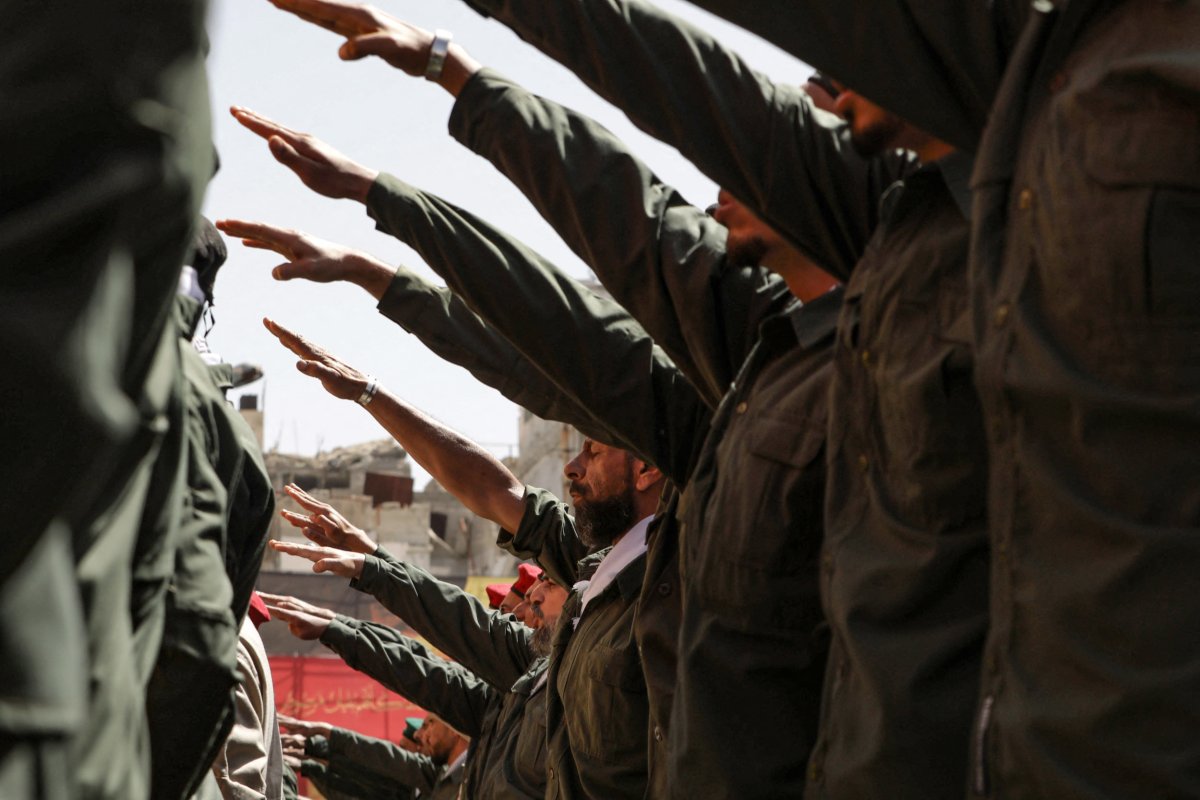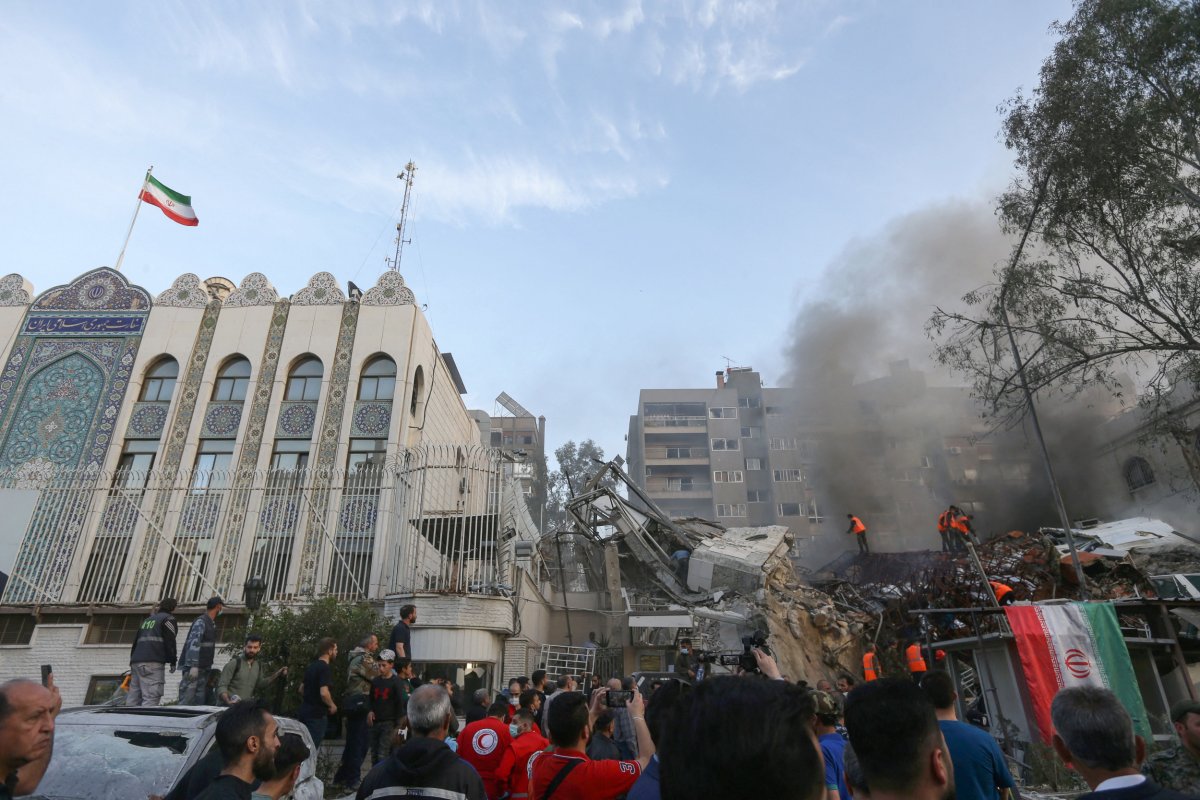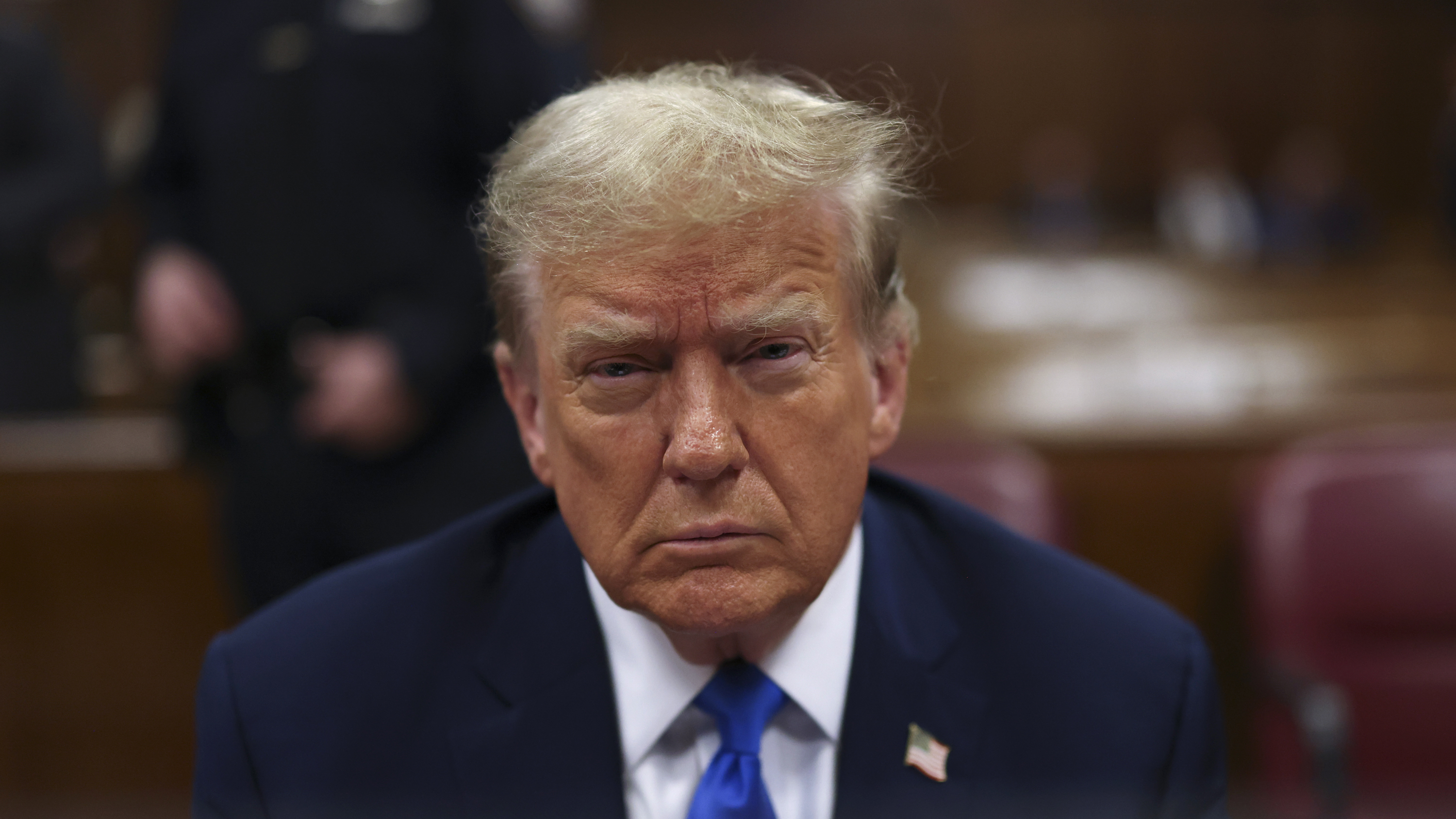A Warning From Syria as Middle East Braces for Iran's Revenge on Israel
Syria has issued a new warning to both Israel and the United States at a time when the Middle East is bracing for Iran's promised retaliation after an alleged Israeli attack on Tehran's embassy complex in Damascus.
With the regional tensions already flaring over the ongoing war in the Gaza Strip, the Syrian Mission to the United Nations conveyed to Newsweek the country's "condemnation in the strongest terms of the Israeli attack that targeted the Iranian consulate building in Damascus."
"What the Zionist entity did in targeting the headquarters of a diplomatic mission in a populated area is not surprising, as this entity was built on killing, bloodshed, displacement, and plunder," the mission said. "The genocides and massacres that have been conducted by the Israeli entity, and that have been continuing in Gaza for more than six months are nothing but the clearest evidence of the barbarity of this entity."
The mission went on to accuse Israel, which has denied targeting civilians, of being the primary source of regional unrest as a result of its actions in Gaza and abroad, including in Syria. The mission further called out the U.S. for the support it has shown and provided to its ally since the deadliest-ever bout of Israeli-Palestinian violence began with an unprecedented Hamas-led assault on Israel six months ago.
"The Israeli violations of the Syrian lands and its repeated attacks on the residential neighborhoods prove the aggressive and barbaric nature of this entity and reaffirm that it is the main cause of instability in the region and the suffering of its people," the mission said.
"The United States of America not only participated actively in the Israeli entity's war on the Palestinian people," the mission added, "but it spares no opportunity to justify the crimes and terrorism of this entity, from targeting defenseless people to targeting humanitarian organizations and diplomatic missions."

The April 1 attack on the Iranian consular building marked the most high-profile strike yet in a semi-covert Israeli campaign against Iran and allied factions in Syria that dates back at least a decade. Seven military advisers, including two senior Islamic Revolutionary Guard Corps (IRGC) commanders, and six Syrians were listed among the dead.
Iran's top political and military leadership have since vowed to strike back, without indicating when, where or how, putting the region and world powers on edge. Israel has warned against any direct attacks.
"For years, and even more so during the war, Iran has been financing, directing and arming its proxies—in Lebanon, Gaza, Syria, Iraq and Yemen—to attack the State of Israel, and not only the State of Israel, but other countries in the region and not only in the region," Israel Defense Forces (IDF) spokesperson Rear Admiral Daniel Hagari said in a statement Thursday.
"An attack from Iranian territory would be clear evidence of Iran's intentions to escalate the Middle East and stop hiding behind the proxies," he added.
Newsweek has reached out to the IDF for comment.
As U.S. Central Command chief General Michael Kurilla traveled to Israel on Thursday, officials in Washington have engaged in a flurry of diplomatic communications in a bid to caution Tehran against retaliation.
The message being sent, according to U.S. State Department spokesperson Matthew Miller, is "that further escalation of this conflict doesn't just hurt Israel, doesn't just hurt Iran, doesn't just hurt the countries in the region, but that it harms every country in the world."
As for Syria, the country already finds itself on the front lines of long-running tensions between Iran and Israel while in the midst of an ongoing civil war.
While Damascus has long been Tehran's closest Arab ally, Iran significantly boosted its presence and influence in the country upon mobilizing in support of Syrian President Bashar al-Assad after widespread protests devolved into armed conflict between the government and an array of rebel and jihadi groups in 2011.
The U.S. and a number of partnered nations backed a loose coalition of opposition forces but later shifted to battling the rapidly rising Islamic State militant group (ISIS) in 2014. The following year, the Pentagon forged a partnership with the Kurdish-led Syrian Democratic Forces, and Russia conducted a direct military intervention to aid the Syrian government, which was also battling ISIS alongside the remnants of other rebel groups.
Assad would regain control over much of the country. Regions outside of his reach include a rebel-held stretch of the northwest where neighboring Turkey has established a presence, and swaths of the east, mostly held by the Kurdish-led Syrian Democratic Forces militia and a contingent of roughly 900 U.S. troops. Damascus has demanded that both Turkish and U.S. troops withdraw immediately.
Last month, a State Department spokesperson defended the legal case for the ongoing U.S. military presence in Syria in comments shared with Newsweek. Still, the White House remains concerned that U.S. personnel could be caught up in any new regional flare-up.

Syria recently welcomed Iran's top diplomat for "important consultations" following the consular building attack. And though still largely cut off from Washington and much of the West due to allegations of widespread human rights abuses and closely aligned with Tehran, Assad has reestablished ties with top regional players in recent years, including Saudi Arabia and the United Arab Emirates, both of which condemned the strike on Iran's diplomatic presence in Syria.
Iran and its allies have only further entrenched themselves across Syria, having established an intricate network of command centers. This network is viewed by Israel as an urgent national security threat that has heightened substantially since the October 7 outbreak of the conflict in Gaza.
When the conflict between the IDF and Hamas erupted, Axis of Resistance units in Lebanon, Iraq, Syria and Yemen mobilized to join the fight from abroad. One coalition of groups calling itself the Islamic Resistance in Iraq has targeted both Israel and U.S. troops in Iraq and Syria, though operations against the U.S. have declined significantly since an unofficial cease-fire began in February.
But while the U.S. has called on other countries to urge Iran not to carry out a military response against Israel, already in the throes of a multi-front war, Syria has called upon the international community to exert further pressure on Israel amid mounting criticism of its handling of the conflict in Gaza.
"The Syrian Arab Republic calls on all countries of the world to assume their responsibilities regarding the serious and repeated Israeli violations of the principles of International Law and International Humanitarian Law," the Syrian Mission to the U.N. said, "and to oblige the Zionist entity and those who support it to stop their crimes and hold the entity's officials accountable for their crimes against the peoples of the region."
"In this regard," the mission added, "Syria will continue to combat terrorism and its tools on its territory and support all peoples who fight terrorism and seek to guarantee their freedom, sovereignty, and territorial integrity."
Uncommon Knowledge
Newsweek is committed to challenging conventional wisdom and finding connections in the search for common ground.
Newsweek is committed to challenging conventional wisdom and finding connections in the search for common ground.

 1 week ago
25
1 week ago
25


